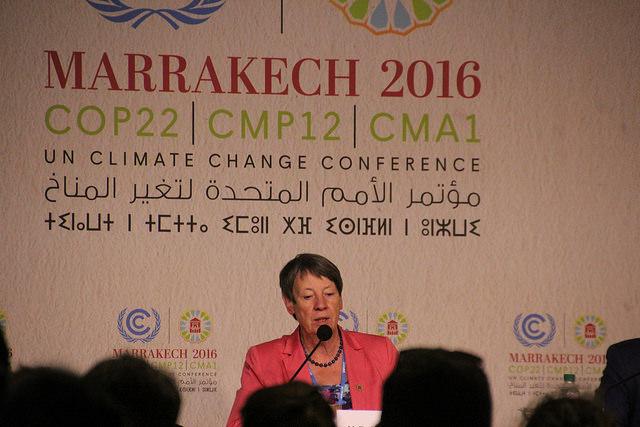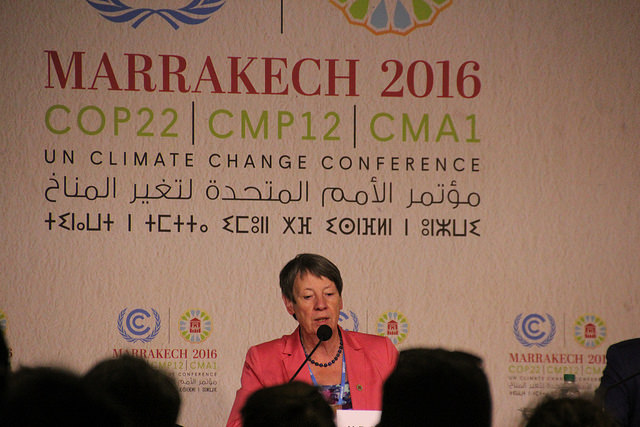Some of the poorest and most disadvantaged countries in the world are aiming for a move to 100% green energy.
On the last day of the Marrakech climate conference, Climate Vulnerable Forum members issued a statement on future plans. Countries such as Haiti, Ethiopia and Bangladesh claim they will alter their nations plans on carbon cutting before 2020. The move was welcomed by delegates, labeling it “inspirational”.
The two weeks of negotiations at the conference were severely overshadowed by the US election and the reaction to Donald Trump being elected. Nevertheless, members of the Climate Vulnerable Forum (CVF) made an effort to illustrate even poor nations can be committed to combating global warming and released a promise to entirely green their economies with renewables during 2030-2050.
The plan dubbed the ‘Marrakech Vision’ promises their 47 members will “strive to meet 100% domestic renewable energy production as rapidly as possible, while working to end energy poverty and protect water and food security, taking into consideration national circumstances”.
Pioneers of Green
The nations involved in the vision keenly support keeping the rise of global temperatures in the next 10 years under 1.5C, a number determined in the Paris negotiations last year.
Marshall Islands minister Mattlan Zackhras said, _“We are pioneering the transformation towards 100% renewable energy, but we want other countries to follow in our footsteps in order to evade catastrophic impacts we are experiencing through hurricanes, flooding and droughts,”. _
Pledges were also made by CVF countries to make changes to their national climate-cutting plans in time for 2020 and to construct more long-term plans as soon as they can.
The amount of progress being made by rich countries sparked feelings of impatience among CVF members.
_“We don’t know what countries are still waiting for to move towards net carbon neutrality and 100% renewable energy,” _said Costa Rica’s environment minister Edgar Gutierrez, noting that all parties should begin the transmission to renewables or everyone will suffer.
Other negotiators such as EU climate commissioner Miguel Arias Canete welcomed the move with open arms.
“They [CVF] have once again shown their moral leadership in this process with real-world commitments to action. These countries are already living the terrifying reality of climate change today and their very existence is on the line. The EU stands with them and their commitment to greater ambition in the years ahead.”
The majority of the move closer to meeting these renewables goals depends on finances from richer nations, whom have said they will give $100bn every year from 2020 is stated in the Paris climate agreement.
There are concerns surrounding any potential pullouts by the US from the Paris agreement and how it would impact that fund. The US has currently promised $3bn for the green climate fund initial capitalization however they have only paid around $500m to date. With Trump promising to stop spending US dollars on global warming initiatives, there may be an issue.
_“If the US pulls out and the others cut, it creates uncertainty and that can hinder ambition,” _said Tosi Mpanu-Mpanu from DRC.
“If they have the impression that climate finance is a fluke, and nothing is materialising, then of course it is going to hinder ambition and climate action from developing countries.”



